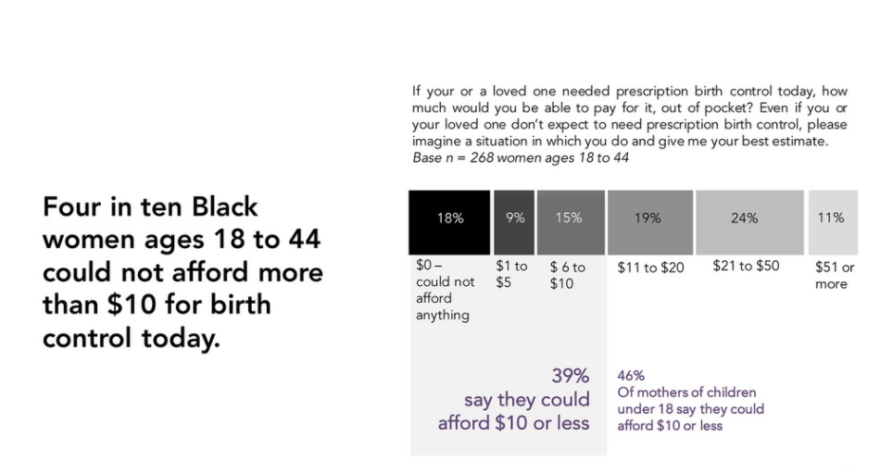A new survey shows black adults in Texas and around the country have a lot of concerns about reproductive health. Experts met in Dallas this week to talk about the findings and their implications.
Black women are making progress in a number of areas, but when it comes to state of their reproductive health and rights, advocates say it’s not great.
That’s according to a new national survey of more than 1,000 black adult women and men.
The partnership In Our Own Voice: National Black Women’s Reproductive Justice Agenda commissioned the study with funding from the Ford Foundation. The initiative is made up of five groups focused on reproductive rights.
Among the highlights:
- 75 percent of respondents think President Donald Trump’s policies will negatively affect the black community’s ability to access quality, affordable health care.
- One in three of those surveyed has had brown water come out of their faucets at home — an issue 50 percent say is a factor in their decision to become a parent.
- Four in 10 black women ages 18 to 44 could not afford more than $10 for birth control today.
- 92 percent agree a woman should be able to get birth control through her health insurance, even if her boss disagrees.

Heidi Williamson, deputy director of strategic partnerships with In Our Own Voice, said the intersection of faith and reproductive health is often misunderstood. For example, black people are religious so they don't believe in abortion or contraception.
"What our research and what our polling tells us is that across all faiths, people who go to church regularly, black people believe in comprehensive sex ed, believe in access to abortion and believe that a woman should have comprehensive access to reproductive health services,” she said.
In Our Own Voice also polled more than 500 black women and men in Texas, the majority of whom were registered voters.
The Texas survey found that 76 percent believe women should have the right to make their own decisions on whether to have an abortion. And nine out of 10 said birth control is a basic part of women’s health care coverage.
“The people who are the most marginalized, they don’t think that their voices matter,” said Marsha Jones, executive director of The Afiya Center, a Dallas-based group focused on reproductive rights. “They don’t think that there’s any value in how they feel about issues that’s impacting them the most. And so I think seeing this data, that people are going to see themselves in that and they can say 'Somebody heard me.'”
Jones says it’s important for black women to get involved in the political process, like running for office or educating people on health care issues.
Explore the full report
PerryUndem Research Communication Black American Survey Report by KERANews on Scribd





